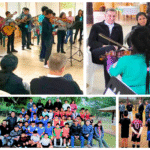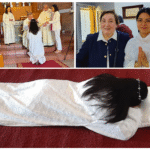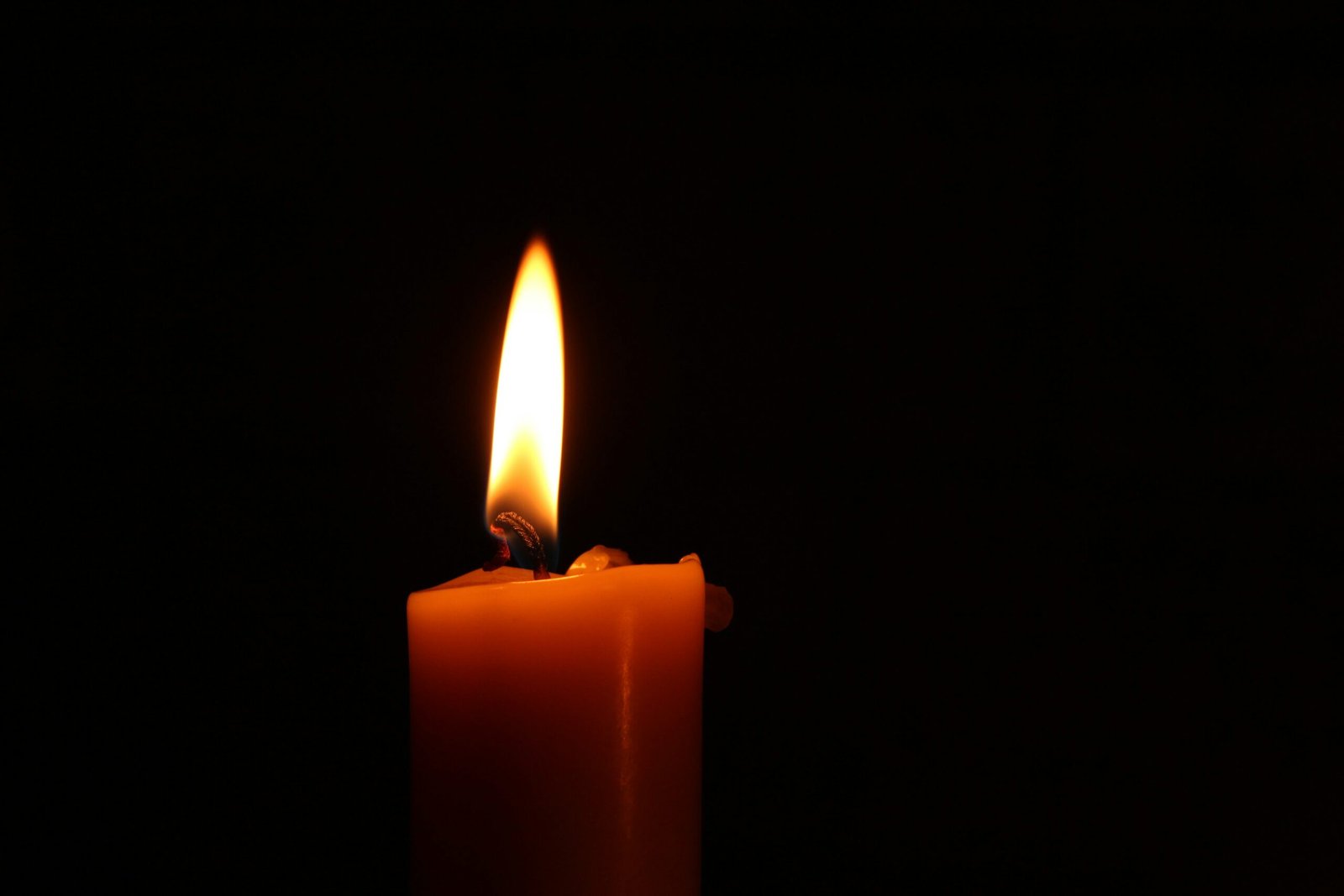
Gospel according to Saint Mark 1,14-20:
After John was arrested, Jesus went into Galilee and began preaching the Good News of God. He said, «The time has come; the kingdom of God is at hand. Change your ways and believe the Good News». As Jesus was walking along the shore of Lake Galilee, He saw Simon and his brother Andrew casting a net in the lake, for they were fishermen. And Jesus said to them, «Follow me, and I will make you fish for people». At once, they abandoned their nets and followed him. Jesus went a little farther on and saw James and John, the sons of Zebedee; they were in their boat mending their nets. Immediately, Jesus called them and they followed him, leaving their father Zebedee in the boat with the hired men.
They left the nets, they left their father…
Fr. Luis CASASUS President of the Idente Missionaries
Rome, January 21, 2024 | III Sunday in Ordinary Time
Jonah 3:1-5.10; 1Cor 7:29-31; Mk 1,14-20
What happened in the hearts of these men to immediately leave their families and their work and follow Christ? Beyond the curiosity we feel, the natural desire to know what the Master told them, there is the fact that they followed Him, not a doctrine that they had not yet been able to understand, or a group that had not even been born.
Knowing God face to face “produces” diligence. There are other attitudes such as haste, hyperactivity or some more or less volatile types of enthusiasm, which we sometimes mistake for diligence.
Diligence does not necessarily imply speed, but rather care and attention to detail when carrying out an action. There are quite a number of people who rush through a job (surely because they are not enthusiastic about it) and the results are usually catastrophic: broken dishes when washing up; forgetfulness due to lack of order and organization in personal work; last minute rushing because I have devoted myself to what is less difficult for me….
But, in any case, diligence, as an evangelical virtue, lived by Christ, Mary and Joseph, can only be referred to one person. That is why it is often classically said to be a form or characteristic of charity. An excellent example is the Visitation of Mary to her cousin Elizabeth. Or the way St. Joseph responds to God in caring for his family.
In today’s Olympic Games, the Marathon is always held at the end of the games, but when the Olympics began, the Marathon was often the first event. The winner of the Marathon received a bouquet of flowers and was allowed to sit next to the King for the rest of the games.
At one of those ancient Greek marathons, several fit runners paced restlessly near the starting line of the race. The time was approaching.
In the midst of it all, a young stranger stood at the starting line. His physique was impressive. He was more athletic than any of the other runners. There seemed to be no doubt among the runners as to who would win the prize. It is said that the stranger was offered money not to run. Another person tried to bribe him with goods. Refusing the offers, he put his foot down and waited for the signal to run. When the signal was given, he was the first to start. At the finish line, he was the first to cross, far ahead of the rest.
When it was all over, someone asked the young man if he thought the flowers were worth as much as the money and goods he had refused. He replied: I did not participate in the race for the flowers. I ran so that I could stand beside my King.
—ooOoo—
The First Reading teaches us how our lack of diligence can be remedied by Providence. Jonah, who receives a mandate for a difficult mission, to preach repentance in the corrupt city of Nineveh, hesitates and refuses to obey, traveling West, in the opposite direction from where God directed him. But, after being thrown into the sea by the sailors, who thus hoped to escape the supposed divine punishment of shipwreck, he is miraculously saved, repents and undertakes his mission with genuine and exemplary diligence, traveling and preaching unceasingly through the streets of the city and achieving, against all odds and in the face of his own unbelief, the conversion of the whole city and the forgiveness of Yahweh for it.
If the reaction and the change of life of the fishermen who found Christ is surprising, so is the repentance of more than one hundred and twenty thousand people of Nineveh, the city symbol of evil and perversion (Jonah 4: 11). Within you and me there is mud and precious stones, negative tendencies and authentic treasures. God knows how to take advantage of everything, even of the clumsy words of Jonah, who did not even finish going through the whole city of Nineveh… according to the biblical account, he did only a third of the mission entrusted to him, he did not show “human efficiency”, but a real diligence, which had God’s answer.
In sharing our mystical experience, we mention the Gifts of the Holy Spirit. One of them, piety, means a change in our way of loving, of living charity. Without a doubt, diligence is a manifestation of that gift, a grace of the Holy Spirit that goes beyond the relative readiness or good disposition of character. He alone is capable of setting our talents in motion, of awakening our dormant energies.
The example of David (1 Sam. 24) in the Old Testament is often given. David and his men were hiding from Saul in a cave when Saul unknowingly entered the cave. David’s companions suggested that God had delivered Saul to them, and urged David to kill him, for it was a unique opportunity. If David killed Saul, they thought they could stop running away and David could become king. But David refused to harm Saul because he was “the Lord’s anointed,” showing not only compassion, but the wisdom and diligence to make a proper decision, beyond the logic of the world, its rashness and passions. Indeed, wisdom from above is first of all pure, then peaceable, gentle, condescending, full of mercy and good fruits, without hesitation, without hypocrisy (James 3:17).
It is our responsibility to embrace, accept and put into practice this gift of diligence. There is no lack of truly spiritual people who say that diligence is born when the Holy Spirit makes us really aware of what is important. And that is wisdom. Let us take seriously the gifts we receive because, as Herman Hesse wrote in his beautiful novel Siddhartha (1922): Wisdom cannot be transmitted. Wisdom that a wise man tries to impart always sounds like nonsense to someone else…. Knowledge can be communicated, but not wisdom. One can find it, live it, do wonders through it, but one cannot communicate it or teach it.
—ooOoo—
The Second Reading encourages us to do more than take advantage of time to do things. Rather, it is a call that NOTHING can become the center of our life. Nothing and no one can become absolute, an idol. Neither the morally good nor the reprehensible; neither sadness nor joy; nor the goods that are at our disposal, even the best of our living together (he who has a wife, let him live as if he had none), because everything changes, everything disappears, ceases to be our support.
Paul’s invitation is that of a person who knows what it is to have (or to have had) intellectual capacity, good contacts, sufficient health, energy… and to have managed to offer everything to God: eating or fasting, suffering and enjoying, having a good reputation or receiving continuous criticism and mistrust. If we are aware that, in the midst of our mediocrity, like Jonah, we have been chosen to be instruments of God, everything acquires meaning, every moment becomes valuable.
Moreover, let us note that Jesus begins today’s message by saying that the time is fulfilled, which is easy to imagine had an enormous impact on the Jews, who had been waiting for years for the arrival of a Messiah capable of leading the people, after centuries of corrupt and vicious kings, with a few exceptions. This hope is proclaimed in the oldest books of the Old Testament: The Lord will reign forever (Ex 15:18). Christ says that this time has come and we know that in reality it is a process, a permanent arrival that in a special way is celebrated at Christmas and that each one of us is invited to live with the call of Christ himself today: The time is fulfilled.
This call to conversion goes hand in hand with believing in the Good News. To be converted does not mean simply to stop doing evil, but to awaken to authentic life, to raise one’s head and see that every encounter with any human being is something prepared by God, a situation to which I must respond, an opportunity that I cannot miss, because, even if I do not feel God’s presence, we experience that he contemplates us at every moment. Yes, conversion begins with a new way of looking at God, at our neighbor, at the world. It is to begin to see everything from God’s perspective, from the loving, patient God, slow to anger, full of goodness and concern for his creatures, from the God who knows how to distinguish what seems and what is, the ephemeral from the lasting.
A newspaper once ran a story about a woman who was driving home one afternoon when she noticed a huge truck right behind her. Thinking it was too close, she stepped on the accelerator. But the truck accelerated as well. Soon, they were both speeding down the highway. Frightened, she pulled off the highway, but the truck continued behind her. She had already panicked, so she drove to a gas station and jumped out of the car, screaming.
The truck driver stopped right behind her, jumped out of the truck, ran to his car and opened the back door. There, crouched behind his seat, was a dangerous rapist who was being hunted by the law. The truck driver, from his elevated position, had seen him. He was pursuing the woman, not to harm her, but to keep her from being hurt or killed. So it is with God. He sees the dangers we face; and He knows the outcome of a course we have chosen. He tries to warn us, perhaps through conscience, the voice of a friend, events, or a loved one. We simply must be open to God’s wisdom in every situation.
Diligence, generosity, decisiveness in detachment from what is old and incompatible with the future world, characterize the response of those who, responding to the call of Jesus, commit themselves to God’s plans.
We begun by speaking of diligence. Lorenzo Scupoli (1530-1610), an Italian priest and writer, wrote an excellent book, The Spiritual Combat, which influenced many people of the time, including St. Francis de Sales. In it you can read the following lines, very suitable for those who feel anxious or overwhelmed. The paragraph does not mention God, but one can guess that it is the fruit of an experience of faithful and intelligent ascetic life:
If you feel overwhelmed by the amount of work before you and the difficulties involved, don’t let indolence discourage you. Start with what demands your immediate attention and don’t think about the rest. Be very diligent, for when you have done this well, the rest will come with far less trouble than you had anticipated.
_______________________________
In the Sacred Hearts of Jesus, Mary and Joseph,
Luis CASASUS
President













